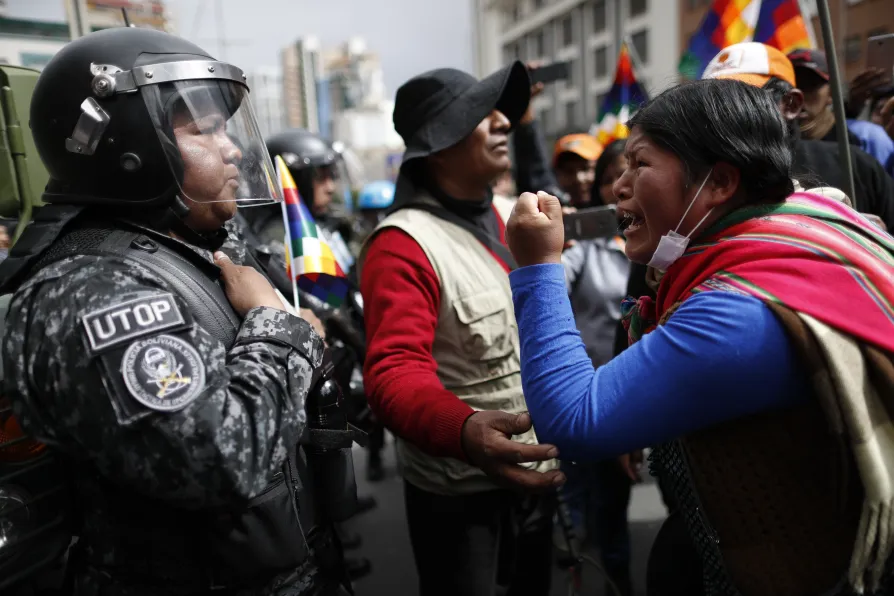RAMZY BAROUD offers six reasons why Netanyahu is prolonging conflict in the Middle East
Bolivia: repression is intensifying nine months on from the lithium coup
KEN LIVINGSTONE looks at the motivations behind the illegal ‘regime change’ in Bolivia last year

 A supporter of Bolivia's former president Evo Morales yells at a police officer, telling him to respect the nation's indigenous people in La Paz, Bolivia, 2019
A supporter of Bolivia's former president Evo Morales yells at a police officer, telling him to respect the nation's indigenous people in La Paz, Bolivia, 2019
IN NOVEMBER 2019 President Trump welcomed the coup in Bolivia that toppled its democratically elected president, Evo Morales, as “one step closer to a completely democratic, prosperous, and free Western Hemisphere.”
But, in fact, like the 1953 coup in Iran or the slew of other coups that the US has supported, funded or organised in the last seven decades, at stake was the control and exploitation of scarce natural resources — in this case Bolivia’s reserves of lithium.
Lithium is a crucial component of the batteries used in electric cars, as well as computers, smartphones, and other equipment. As sales of such vehicles and devices increase, lithium’s value is set to rise steeply as supplies strain to keep up with demand.
Similar stories

JESSICA WIDNER explores how the twin themes of violence and love run through the novels of South Korean Nobel prize-winner Han Kang

Given the global plague of Agent Orange, the bard channels his energy into community self-help
Read Sisters, the journal of the National Assembly Of Women, below.

After years of struggle in the MAS party, the mass movement of left-wing peasants and workers has founded a new party, with former president Evo Morales as its candidate for the summer’s elections, writes CINDY FORSTER










